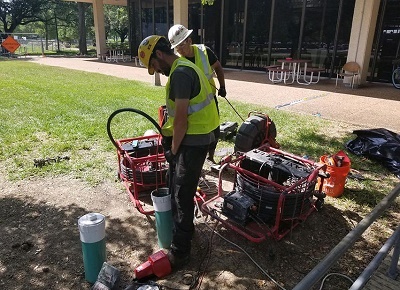Introduction: The Rise of AI and Its Supply Chain Impact
Artificial Intelligence (AI) has revolutionized many industries, and the supply chain is no exception. From predictive analytics to automated warehousing, AI offers the promise of speed, accuracy, and cost-efficiency. However, implementing AI in supply chains is not without its challenges. This blog by Throughput Inc explores the challenges of AI in supply chain operations and how businesses can overcome them to achieve seamless logistics and optimized performance.
1. Data Quality and Availability
One of the biggest challenges of AI in supply chain systems is data quality. AI depends heavily on data for training algorithms, making forecasts, and driving decisions. Poor data leads to poor predictions.
Key Issues:
- Inconsistent data formats across vendors
- Incomplete or missing records
- Real-time data capture challenges
To leverage AI effectively, organizations must prioritize data hygiene. This includes standardizing inputs, automating data collection, and using validation tools to ensure reliability.
2. Integration with Legacy Systems
Many businesses still operate on outdated ERP systems or fragmented platforms. Integrating AI tools with these legacy systems is a massive hurdle.
Why It Matters:
AI tools need access to comprehensive datasets across production, inventory, demand, and shipping. If systems don’t communicate, AI loses visibility.
To combat this, companies must gradually modernize infrastructure or deploy AI platforms that offer flexible integration modules. Throughput Inc, for instance, provides plug-and-play solutions that reduce integration friction.
3. Lack of Skilled Workforce
Despite the buzz around AI, there’s a significant talent gap. Many supply chain professionals are unfamiliar with AI technologies, while data scientists may not understand supply chain intricacies.
Result:
Misalignment in implementation strategies, slow adoption, and underutilized systems.
Solution? Cross-training employees, hiring hybrid professionals, and partnering with AI-focused supply chain consultants like Throughput Inc can bridge this skills gap.
4. High Implementation Costs
Another major challenge of AI in supply chain is the cost barrier. AI adoption often requires substantial investments in infrastructure, software, training, and maintenance.
While the long-term ROI is promising, the upfront capital is a deterrent for small and medium enterprises.
However, SaaS-based AI tools are changing the game. Throughput Inc offers scalable, subscription-based models that make AI accessible without breaking the bank.
5. Resistance to Change
Humans are naturally resistant to change, especially when jobs and responsibilities feel threatened. AI systems may automate decision-making or optimize workflows, which can be seen as disruptive.
This resistance slows down adoption and limits the effectiveness of AI initiatives.
Addressing This Challenge:
- Involve employees early in the transformation
- Communicate AI as an enabler, not a replacer
- Demonstrate small wins to build trust and momentum
6. Ethical and Trust Issues
AI’s decision-making can be opaque. This “black box” issue raises questions about accountability and transparency, especially when things go wrong.
Stakeholders may hesitate to trust AI-driven recommendations without understanding how decisions are made.
Throughput Inc emphasizes explainable AI (XAI), ensuring that businesses can trace every suggestion back to data and logic — building trust across teams.
7. Real-Time Decision-Making Challenges
In the supply chain, timing is everything. AI must work in real time, analyzing thousands of variables and producing actionable insights instantly.
But many systems struggle to process large datasets quickly enough, especially during peak periods or disruptions like port delays or weather issues.
The Fix:
- Edge computing
- High-speed cloud integrations
- Pre-trained AI models tailored to supply chains
Throughput Inc’s AI tools are built for speed and scalability, ensuring timely and accurate decisions under pressure.
8. Regulatory Compliance
Different countries and industries have varying data privacy and compliance requirements. AI systems must adapt to these standards while still performing optimally.
Failure to comply can result in fines, legal challenges, and reputational damage.
Supply chain AI solutions must be designed with compliance in mind. GDPR, HIPAA, and other data laws should be accounted for from day one.
9. Supply Chain Complexity
Modern supply chains are global, multi-layered, and volatile. AI systems must account for thousands of suppliers, partners, and distribution points.
Modeling such complexity is no easy task. It requires adaptive learning, dynamic simulations, and high-frequency updates.
Throughput Inc tackles this with AI models that evolve continuously, reflecting real-time changes in demand, lead times, and supply networks.
10. Measuring AI ROI
One of the underrated challenges of AI in supply chain optimization is measuring success. Traditional KPIs may not fully reflect AI’s impact.
Questions Businesses Face:
- Is AI reducing costs or just shifting them?
- Are we seeing faster deliveries or better forecasts?
- How much downtime is saved?
Clear benchmarking and ongoing evaluation are crucial. Throughput Inc offers built-in analytics dashboards that track ROI in real time, so businesses stay informed and in control.
Conclusion: Overcoming the Challenges of AI in Supply Chain
While the challenges of AI in supply chain are real and significant, they are not insurmountable. With the right strategy, tools, and mindset, businesses can navigate these obstacles and unlock the full potential of AI.
From data quality to trust, integration, and ROI measurement, each challenge presents an opportunity to innovate and grow. Throughput Inc helps organizations tackle these hurdles head-on with tailored AI solutions that drive operational excellence.
As supply chains become more complex and competitive, embracing AI is no longer optional — it’s essential. The key lies in understanding the challenges, planning strategically, and partnering with experts who know the terrain.


